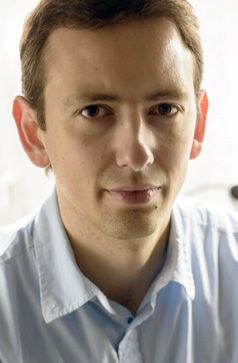Approximately 125,000 Americans each year develop epilepsy, a brain disease marked by recurring seizures that are sudden and unpredictable and can have dangerous and even fatal consequences. There is no known cure for epilepsy, but medications can control seizures.
Some 30 percent of epilepsy patients, however, suffer seizures that do not respond to existing medications, says Yevgeny Berdichevsky. And the gradual onset and slow progression of the disease complicate efforts by researchers to identify and test new anticonvulsant drugs quickly.
Berdichevsky, an assistant professor of electrical and computer engineering and director of the Neural Engineering Lab, recently received a grant from the National Institutes of Health(NIH) to help speed the process of drug discovery by testing multiple potential epilepsy medications simultaneously.
“Our goal is to increase the rate of drug development by significantly improving the scalability of long-term electrical monitoring of epileptic activity in vitro. In the end, the testing of multiple drugs at a time is an engineering problem.”
Berdichevsky hopes to scale up his testing platform so that it can screen small-molecule inhibitor candidates in drug libraries.
“What we’re doing is early-stage drug target discovery,” he says. “If we find that a molecule inhibits epileptic activity, that tells us what protein is causing epileptic activity and would be a good target for a drug.
“Once we find a target, we can let the pharmacological companies test drugs.”
A faculty member in Lehigh's bioengineering program, Berdichevsky began studying epilepsy five years ago at Massachusetts General Hospital as a postdoctoral researcher.
He and his collaborators, including graduate and undergraduate students, have published articles in the Journal of Neuroscience, Lab on a Chip, the Journal of Neuroscience Methods and the Neurobiology of Diseases.
Read the full story at the Lehigh University News Center.
-Kurt Pfitzer is a writer with Lehigh University Media Relations.

